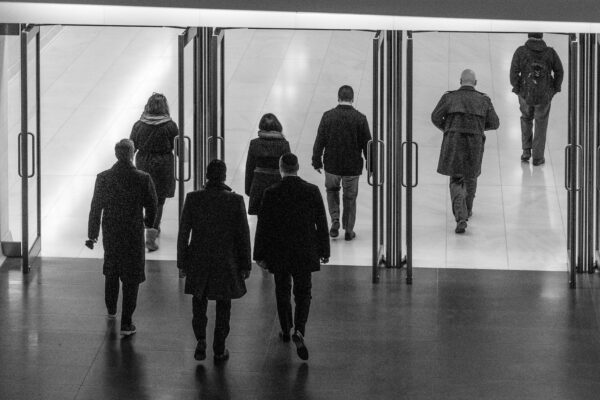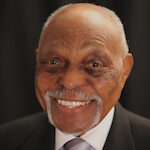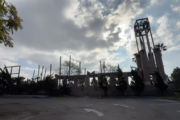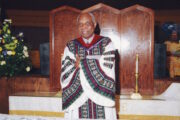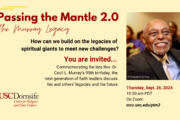Rev. Cecil Murray wrote the following op-ed with Rev. Kelvin Sauls. It appeared in the Los Angeles Daily News and Los Angeles Sentinel.
Leray Williams, a 24-year-old ironworker apprentice, landed a job on a large project. He arrived to work early, organized his tools, and always finished his assignments in time to offer a helping hand. After two years of unemployment, he wasn’t going to let anything let him miss this latest job opportunity. Nothing, until a noose was hung at the job site. Williams endured seven months of racist slurs and “jokes” from those with whom he worked and had to trust with his life.
“Betty,” a black administrative assistant at a high-profile entertainment company, filed a formal complaint after she learned that a less-experienced white woman she had trained was classified higher and paid more, for doing significantly less work. After bringing it to management, there was no follow-up. The company fired Betty after they learned she reported employment discrimination. Such termination, for enforcing your workplace rights, is in violation of Title VII.
Andre, a black father of twin boys, searched more than two years for work. Armed with multiple pre-apprenticeship certificates, he woke up at 4 o’clock every morning to search for work at multiple construction sites across Los Angeles. He rarely saw people who looked like him on the job sites and was met with blank stares. One site foreman refused to take his resume and some even called the police on him as he waited outside their work sites, hoping for opportunity.
Discrimination like these workers experienced remains an unfortunate yet prevalent reality for too many in our city, especially black workers. Fifty percent of Los Angeles’ black community is unemployed or underemployed (making less than $12 an hour). In high-growth sectors such as the public construction industry, black workers represent 10 percent of trained apprentices but less than 3 percent of the workforce. Once black workers do enter the union job pipeline, they still aren’t being hired. And when they make it onto the job, black workers experienced wage theft violations at twice the rate of white workers. Laws are on the books, but they lack enforcement. The Los Angeles City Council recently took a monumental step to raise the minimum wage to $15 an hour by 2020. In the 14-1 vote, the council also included establishment of an Office of Labor Standards and Enforcement (OLSE) to enforce the wage increase.
However, we watched in disbelief as the anti-discrimination enforcement amendment failed to move to a full vote. Instead, the provision went back to the city’s Economic Development Committee, and it is now in the hands of the full City Council.
To Councilman Curren Price, who drafted the amendment, and to its supporters including Bob Blumenfield, Mike Bonin, Gil Cedillo, Jose Huizar, Paul Koretz, Nury Martinez and Herb Wesson, we say thank you for your courage to stand up to discrimination.
To Los Angeles we ask, why do workers have to wait to be protected?
When black people are not hired, are underpaid, have their wages stolen, and are mistreated on the job, the repercussions go far beyond the individual. It destabilizes families and the resulting poverty is at the root of mass incarceration, homelessness, health disparities and the educational divide.
We have an opportunity to demonstrate that black lives matter in Los Angeles. By creating a fully funded OLSE, Los Angeles would join more than 10 cities across the country that protect local workers’ civil rights. The agency would collaborate with state and federal agencies to investigate problematic industries, adjudicate claims and impose penalties.
We must protect workers from unscrupulous employers who deny work opportunities based on skin color, gender or sexual identity. We urge Los Angeles to establish an Office of Labor Standards Enforcement that can effectively enforce all of the city’s basic labor laws — including anti-discrimination laws.
Workers in our community cannot wait. As Dr. Martin Luther King Jr. said: “‘Wait’ has almost always meant ‘never’ … ’justice too long delayed is justice denied.’”
Photo Credit: John St. John/Flickr
The Rev. Kelvin Sauls is senior pastor at Holman United Methodist Church and a member of the L.A. Black Worker Center Coordinating Committee.
Cecil Murray is retired from the USC Center for Religion and Civic Culture.
